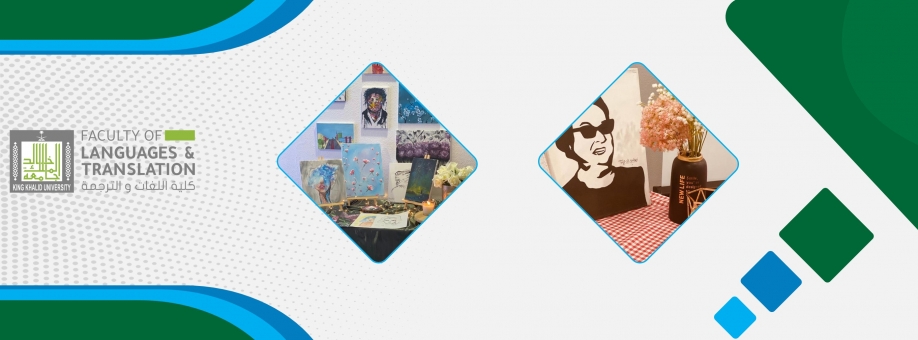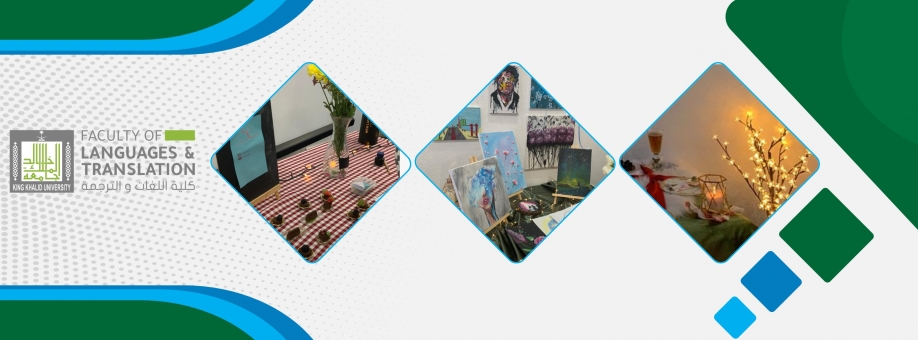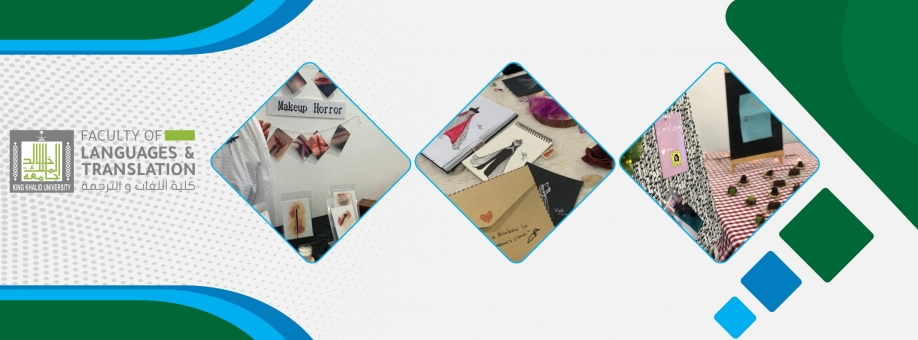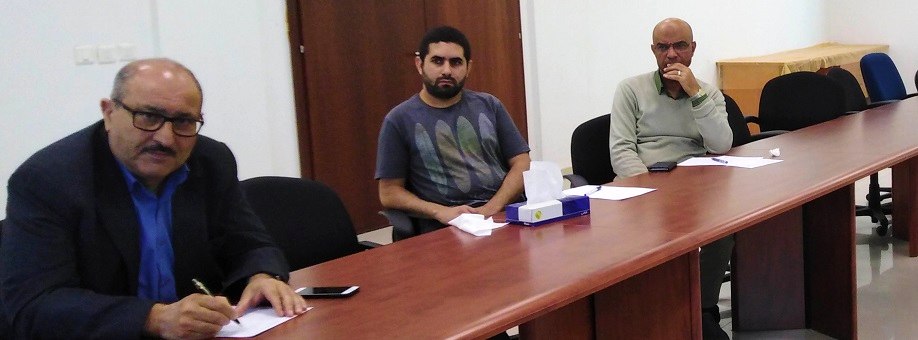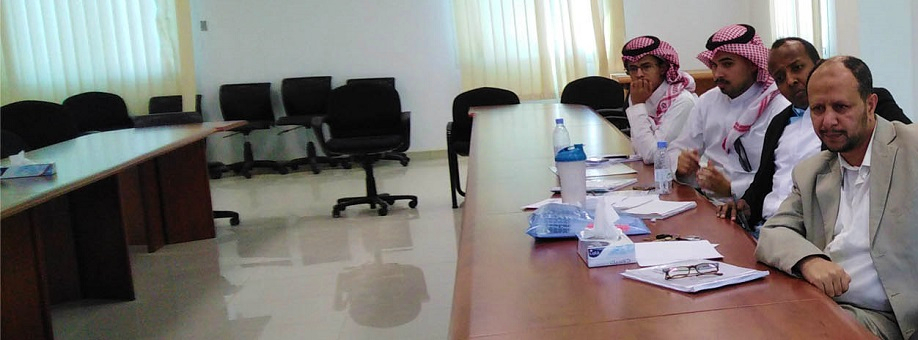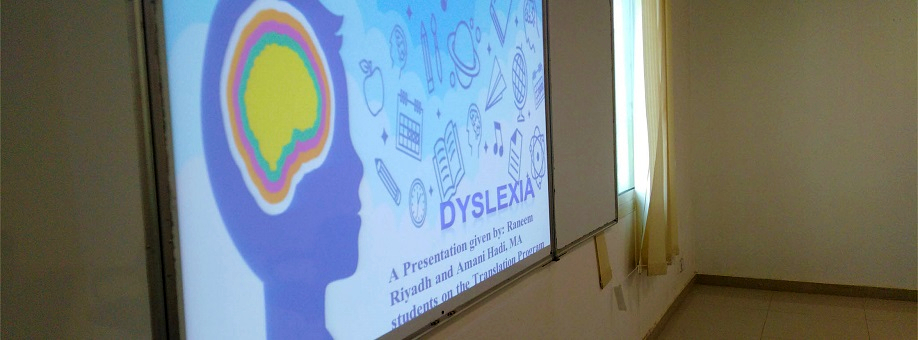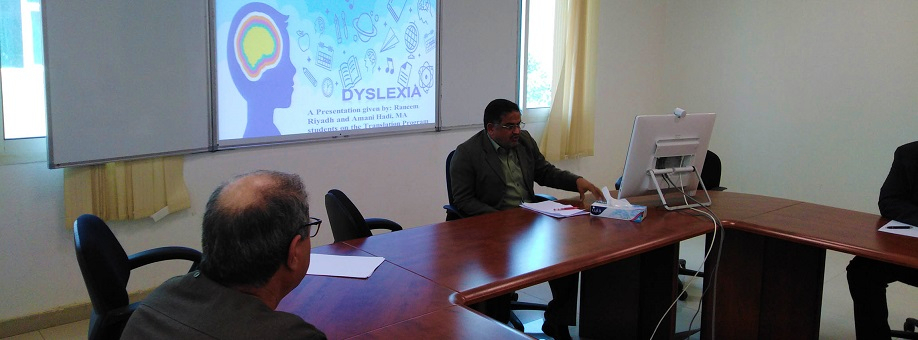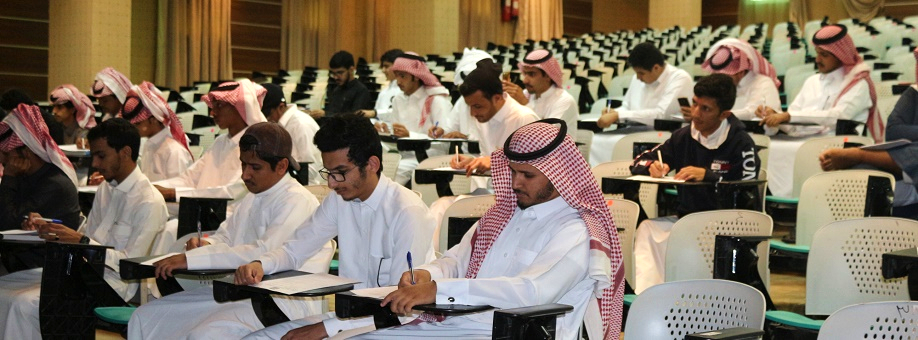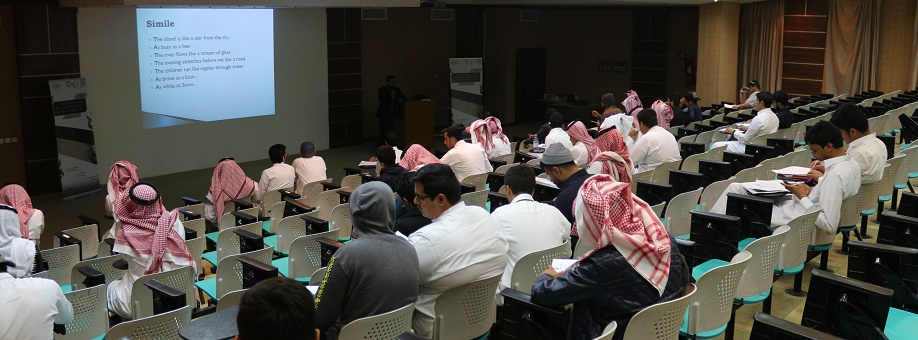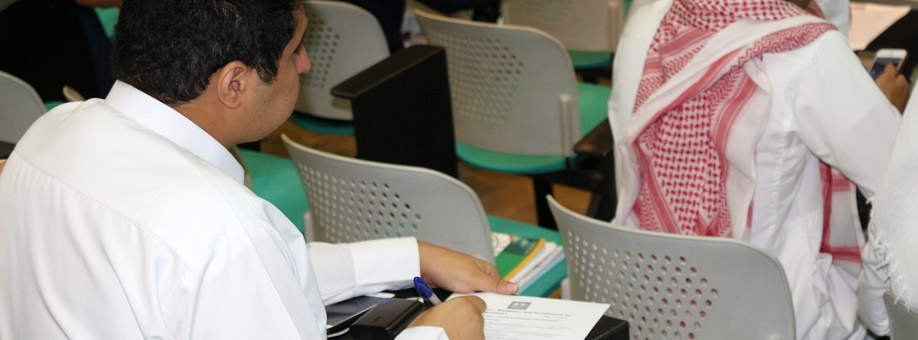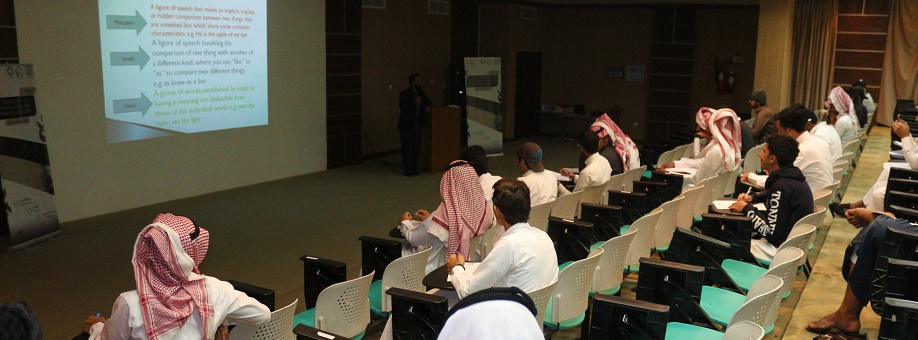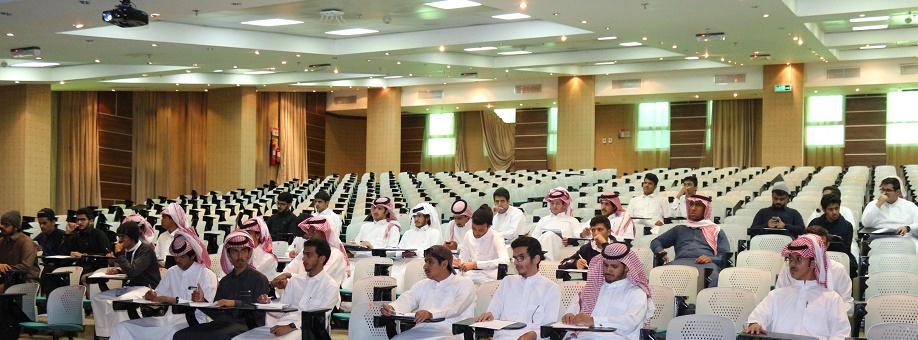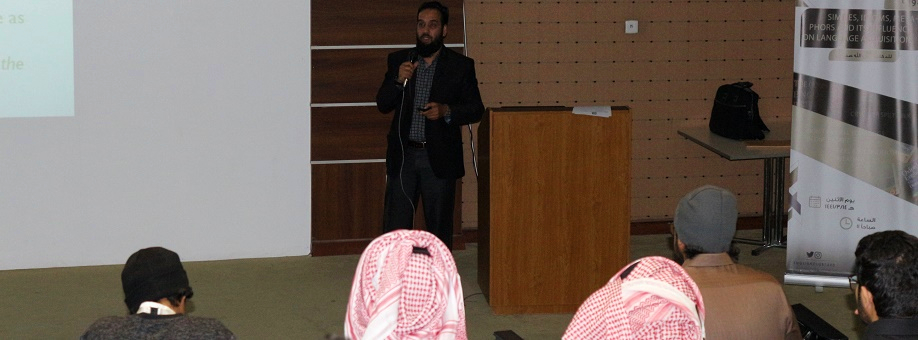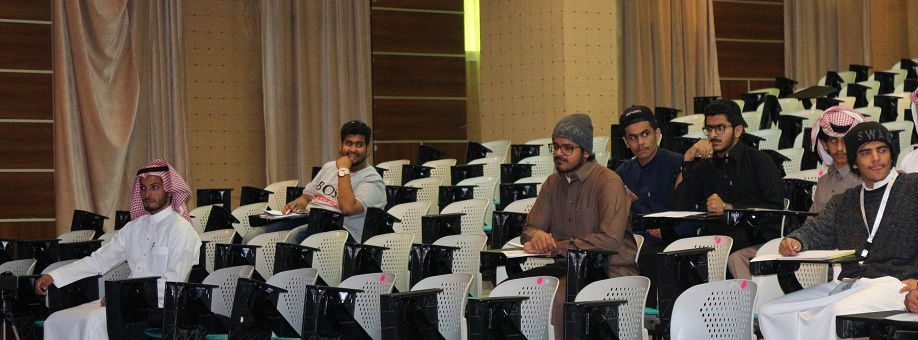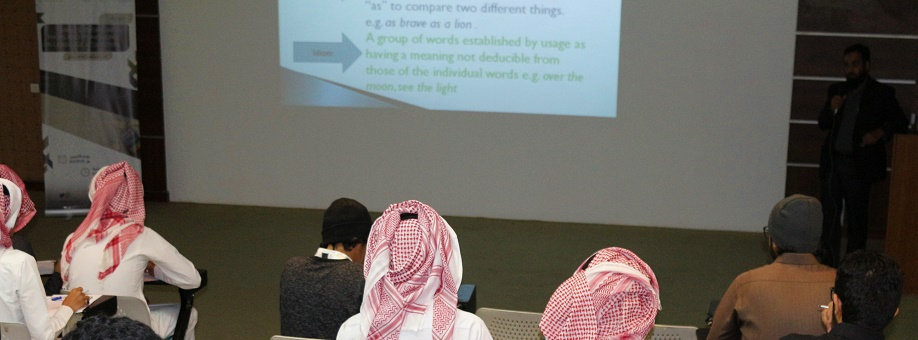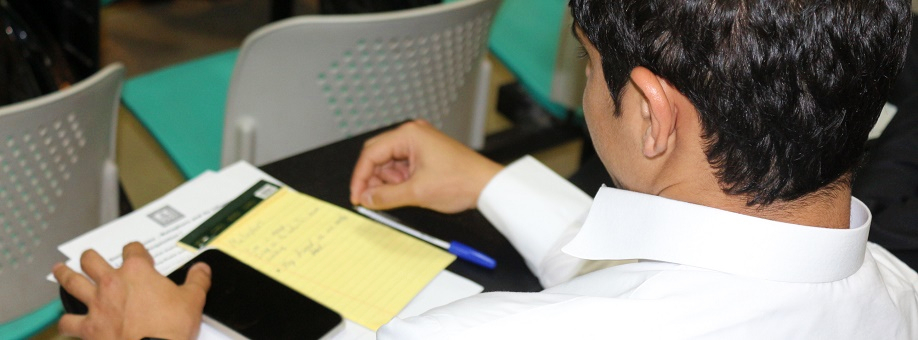Implementing Quality Matters to Build Online Assessments
On November 13th, the E-Learning Unit of the Bachelor of Arts in English program at the Faculty of Languages and Translation, in collaboration with the Deanship of E-Learning, conducted a webinar titled 'Implementing Quality Matters (QM) to Build Effective Online Assessments' from 8 p.m. to 9 p.m. 185 faculty members from across the university attended.
QM is a faculty-centered, peer review process designed to properly evaluate and certify online courses and the constituent components thereof. QM has achieved both domestic and international recognition for its quality assurance and continuous improvement capabilities in online education.
Much of QM's success is attributable to its end-user focus. QM programs are:
Faculty driven;
Collaborative;
Able to provide detailed, constructive course feedback;
Collegial in nature;
Learner-centered in program design and execution.
Under the supervision of Vice Dean of Academic Development and Quality, Dr. Abdulrahman Almosa, and Training Manager at the Deanship of E-Learning, Mohammed Jarallah, E-Learning Unit Supervisor, Mohsin Raza Khan, delivered the webinar. He is a certified QM Master Reviewer and seasoned e-course design professional. At the outset, he reviewed the applicable QM standards for course assessment, followed by an explanation of each evaluative rubric.
Mr. Khan then described the various methods for successfully implementing the standards into an online course assessment. Later, he identified and discussed various QM strategies for online course integration into a variety of curricula. At the conclusion of the webinar, Mr. Khan said, "QM often seems extremely complicated and labor-intensive. However, following the program pays off in the long run with well-designed and highly useful courses that benefit the students." Vice Dean Almosa stated that "e-learning and online courses will play an increasingly vital role in education. QM is an important part of making sure the courses provide efficient learning and high value."
The Bachelor of Arts in English program at the Faculty of Languages and Translation is committed to faculty development and providing students with cutting-edge educational programs and the highest quality learning outcomes.
Date: 11/16/2019
Source: Faculty of Languages and Translation

